commentary Commentary
Commentary: So much for eradicating corruption in Indonesia
The Indonesian Parliament’s passing of a sweeping law that many say will hamstring the Corruption Eradication Agency should be reconsidered, say ISEAS-Yusof Ishak Institute’s Aninda Dewayanti and Deasy Simandjuntak.
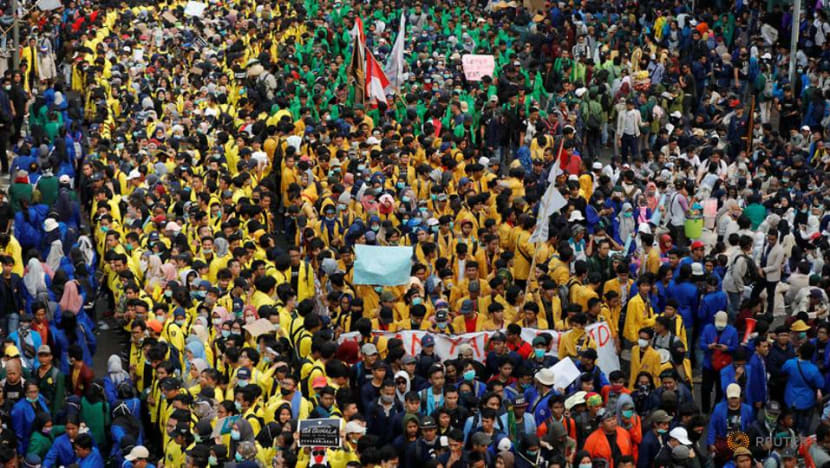
University students take part in a protest outside the Indonesian Parliament building in Jakarta, Indonesia, September 24, 2019. (Photo: REUTERS/Willy Kurniawan)
SINGAPORE: Over the past week, tens of thousands of university students and activists gathered in some of the biggest simultaneous rallies across the Indonesian archipelago in decades to voice grave concerns over recent moves by their government.
Among many demands, they have focused most on calling President Joko Widodo to revoke an amended law, which they say significantly clips the powers of Indonesia’s anti-graft agency, the Corruption Eradication Commission (KPK).
The amended law was passed by the Indonesian parliament barely two weeks ago, just before its term comes to an end in end-September.
Police inspector-general Firli Bahuri was also sworn in as KPK chief, despite concerns over unresolved allegations of ethical misconduct.
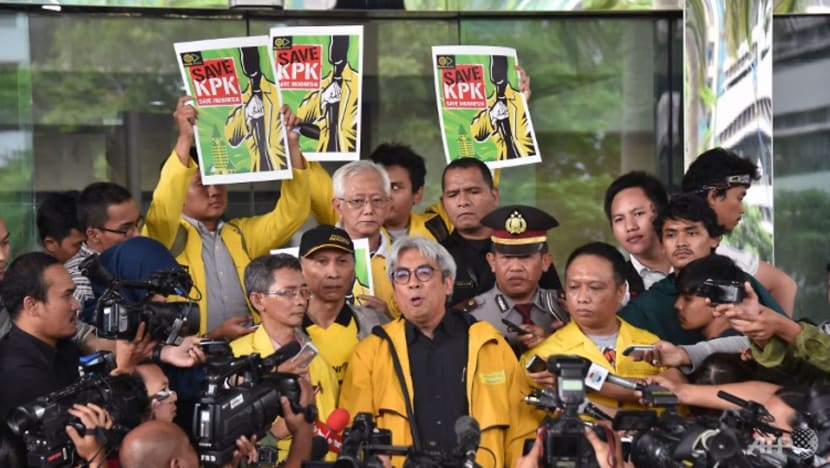
CONTROVERSIAL AMENDMENTS TO KPK LAW
Many Indonesians are concerned about various controversial aspects of the huge amendments to the KPK law, the first since its establishment in 2002.
First, the revised law formally ends KPK’s status as an independent body that can carry out investigations without interference from other arms of government.
Through the establishment of a committee to oversee the KPK, it provides for legislative and executive powers to be exercised in the investigation and prosecution of graft cases, allowing lawmakers and powerful leaders, often the target of KPK investigations, to kill off inquiries before they begin.
This committee will also have say over the KPK’s operational methods, including whether it can carry out wiretaps, yet the law does not specify criteria for the approval of a wiretapping request, nor impose a time limit to come to a decision concerning the request.
Second, as a new arm of the government, the KPK will now draw people from the civil service, including the police.
Apart from questions over whether bringing in non-investigators into the KPK might dilute organisational performance, it might also give rise to conflict of interests if this leads to the KPK becoming less willing to investigate the public sector.
READ: Commentary: Indonesia's anti-corruption drive needs a reality check
Third, the law requires that the KPK discontinue prosecution and investigation processes that have lapsed after two years.
But the most serious, egregious corruption cases in Indonesia, such as the ongoing seven-year investigation on the electronic identity card (E-KTP) corruption, which saw former House Speaker Setya Novanto convicted with embezzlement, need more time.
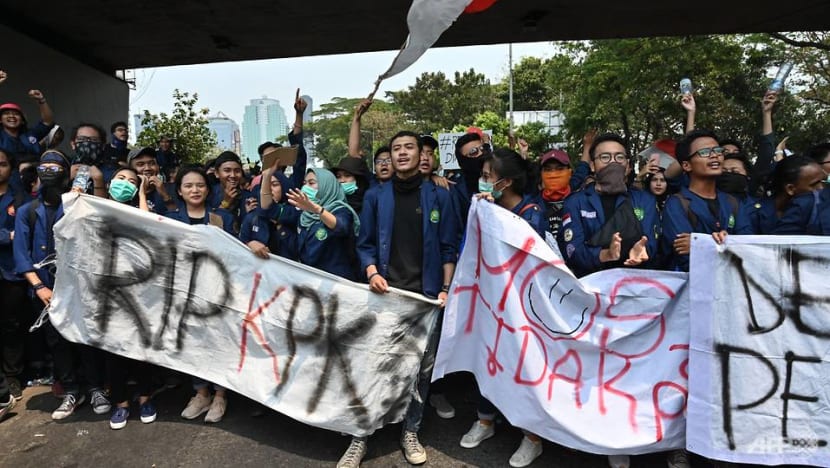
Established in 2002 to facilitate clean governance, the KPK has achieved an astonishing 100 per cent conviction rate, and contributed immensely to improving Indonesia’s position in Transparency International’s Corruption Perception Index, from a position of 122 in 2003 to 89 in 2018.
The KPK’s performance has been outstanding, albeit the harsh political environment it works in and the push-back it has received from the police. It would be a pity if the KPK is now held back from its role of cracking down on corruption and preserving integrity in Indonesia.
Past attempts at revision of the KPK law had failed to win over public opinion in a country where the KPK is revered. So parliament’s passing of sweeping changes despite massive protests was shocking, especially considering how quickly it was finalised over three meetings, where the norm is for laws to be deliberated over many months.
Deputy Speaker of the House Fahri Hamzah has argued that the KPK has failed to build a foundation to solve corruption for the long term, despite having been allocated a big portion of government budget. Similarly, Presidential Chief of Staff Moeldoko claimed that the anti-graft agency has hampered investment.
These despite the Investment Coordinating Board’s data showing that the KPK’s anti-corruption drive has been a positive force in attracting foreign investments.
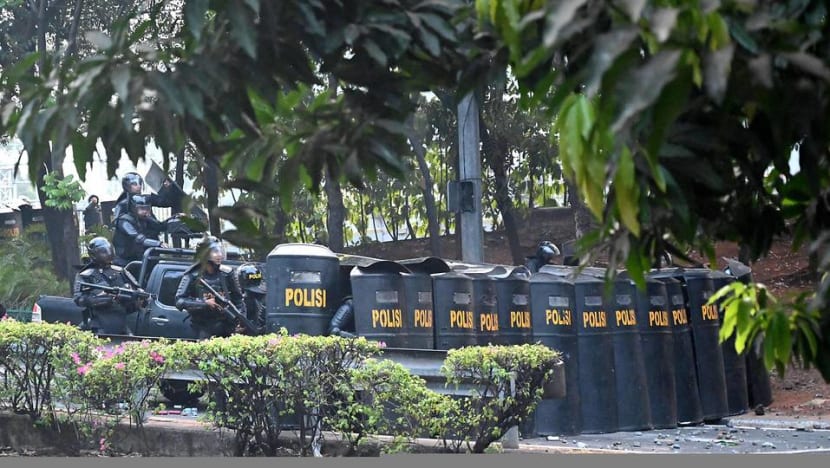
According to the Indonesia Corruption Watch, there have been over 250 members and former members of parliament named suspects in graft cases in over the past five years, with Golkar, a party in Jokowi’s coalition, involved in a signficant number.
The worry is that this move might be a sign of Jokowi’s weakening commitment to eradicate corruption, despite his promise to strengthen the KPK in January 2019.
The silver lining is that he is now considering dropping the law, and could annul the amendment by issuing a regulation-in-lieu-of-law.
THE PROTESTS: CHECKS ON GOVERNMENT OR ANTI-JOKOWI?
The public is now split between those that consider the protests necessary to check the government on the one hand, and Jokowi’s supporters on the other, who see them as efforts to forestall the president’s inauguration in October.
READ: Indonesia minister says 'brutal' student protests were hijacked
There is no denying what started as a peaceful rally has turned violent as clashes with the police have seen the use of tear gas, water cannons and the arrest of almost 100 protesters.
A 21-year-old student died after being rushed to hospital suffering from a chest wound as riots erupted on Sulawesi island.
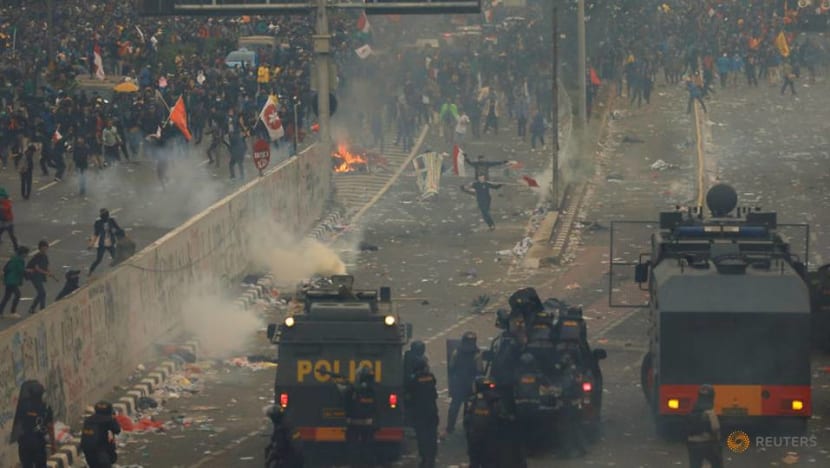
Chief security minister Wiranto has warned of protests being “hijacked” by those seeking to disrupt parliament and Jokowi’s inauguration.
But in Indonesia’s political history, students have been the voice of the nation’s conscience, seeking and defending democratic values at times when these were under attack. In 1998, student protests succeeded in building a crucial momentum that led to Suharto stepping down, thereby ending the New Order regime’s three decades.
Meanwhile polarisation has been emblematic of Indonesia’s post-reform politics. Last May’s divisive presidential election saw voters aligning themselves with either Prabowo, backed by extreme Islamist forces, or Jokowi, who many considered to be more pluralist despite his choice of a conservative Muslim cleric as running-mate.
In 2017, mass mobilisation by hardline groups had prevented the re-election of the Chinese-Christian former Jakarta Ahok and led to his eventual jailing for blasphemy.
FIGHTING ILLIBERALISM WITH ILLIBERALISM
Beyond this politically and emotionally charged binarism, however, there have been concerns that the government has demonstrated a track record of “fighting illiberalism with illiberalism”. President Jokowi issued a mass organisation law in 2017 banning organisations deemed not in line with the state ideology, Pancasila.
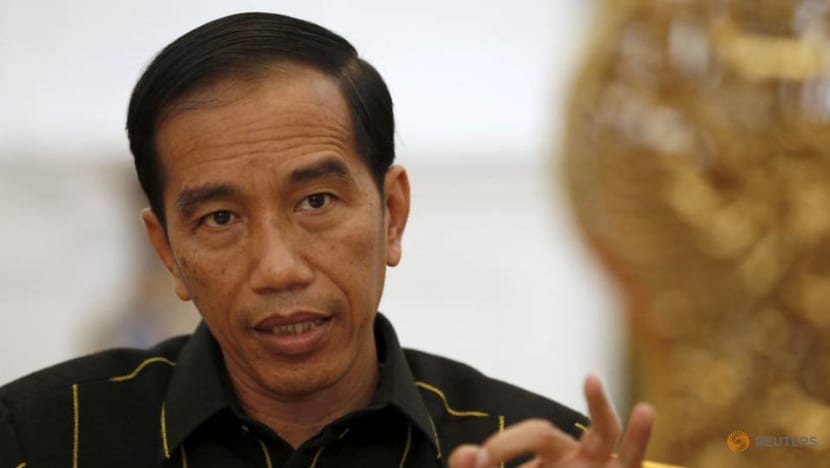
For many, this is reminiscent of the punitive tactics of the New Order when Pancasila was used as tool to clamp down on differing viewpoints from civil society in the name of preserving social cohesion.
READ: Jokowi’s ban on radical groups and Pancasila’s uncomfortable past, a commentary
Observers also lament the Electronic Information and Transaction Law, passed in 2016, which gives the government extensive powers to block content and order internet service providers to do so.
In addition to the KPK law, student protesters have also highlighted the revision of the Criminal Code which potentially curbs the freedoms of women, children, religious minorities and LGBT communities, among others.
While protesters must remain vigilant, preserve the integrity of their movement and not allow contentious political interests to hold sway, the Indonesian government no doubt now faces the difficult task of ensuring that it keeps its commitment to democratic reform.
The polarisation between the government’s detractors and supporters should not be used to legitimise sanctioning laws that potentially hamper good governance and democratic ideals.
And of all the laws in the works, the recent move to pass the KPK law poses the gravest challenge to Indonesia’s fight against corruption and should be reconsidered.
Aninda Dewayanti is Research Officer with the Indonesia Studies Programme, ISEAS – Yusof Ishak Institute. Dr Deasy Simandjuntak is Associate Fellow at the same programme.
















